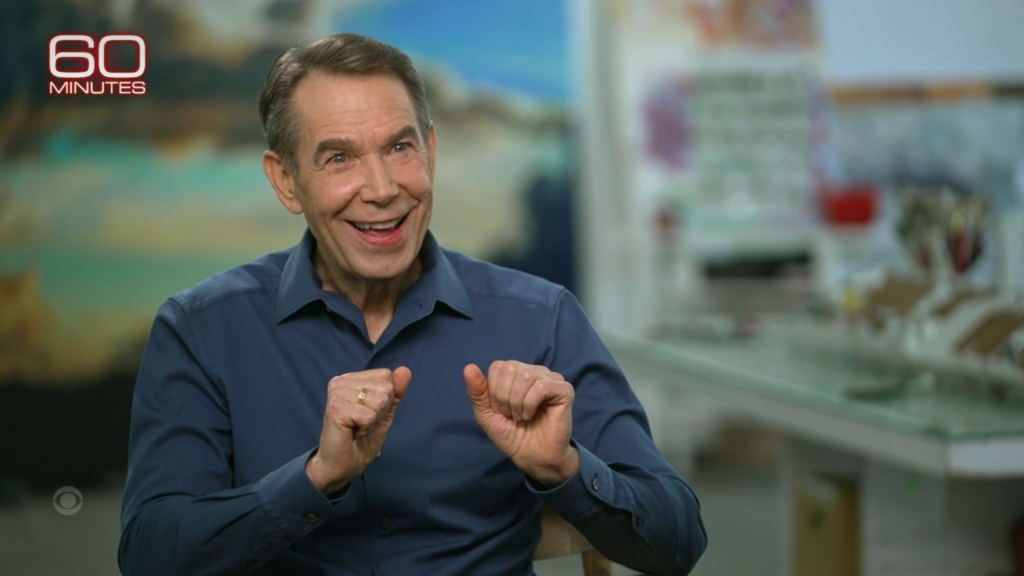People
30 Years After Jeff Koons Was Skewered on ’60 Minutes,’ He Returned to the Show for a Far More Flattering Interview With Anderson Cooper
Hosted by Anderson Cooper, the report paints the millionaire as a populist artist.

Hosted by Anderson Cooper, the report paints the millionaire as a populist artist.

Artnet News

Thirty years ago, 60 Minutes ran an infamous segment on the popular art of the day and the outrageous prices people were paying for it. At the center of the story was Jeff Koons, whose sculpture of three basketballs suspended in a fish tank had just sold at Sotheby’s for $150,000.
The segment’s host, famed correspondent Morley Safer, was not impressed. Art like that made by Koons, Safer said, “may make you believe… that there’s a sucker born every minute.”
This week, Koons was the subject of another 60 Minutes segment on CBS. The piece, a profile, shares little with the one from three decades ago, though watching the two side by side reveals the extent to which money has come to dictate art world taste in the time that’s gone by. Koons, more than any other artist of his generation, symbolizes this phenomenon.
Whereas Safer side-eyed Koons with a healthy skepticism over the commerciality of his practice and persona, the new segment revels in the artist’s fame and wealth.
With host Anderson Cooper—who is, by his own admission, a collector of Koons’s work—we tour the artist’s factory-like studio and see his work on view at the Broad museum in Los Angeles. We hear about his “classic” habit of blowing past budgets, his “legendary” obsession with detail, and see vintage pictures of the sculptor as a kid. He’s almost always wearing some dramatic suit.
Koons, with his Joker-esque smile, comes off as charming, if a little innocuous.
“Maybe you’re thinking Jeff Koons sounds like a phony self-help prophet. Plenty of critics do,” Cooper says at one point. “But he does see art as something that can help people have a personal transformation.”
We also visit Koons on his 800-acre farm in southern Pennsylvania, where he talks of tending to cows and horses on his days away from the studio. In this scene and others, the multi-millionaire artist is depicted as a kind of populist—a man who takes high art low to reach audiences of all backgrounds.
“It’s taking an object which the New York elites might look at think, ‘That’s tacky, that’s trashy, that’s something you buy in a gift show,’ and it’s blowing it up and making it perfect and saying, ‘This has value’? Cooper asks the critic and curator Robert Storr, brought in as talking head.
“It has meaning, not necessarily value,” Storr replies. “The message is that it is there to be embraced, that it is not to be mocked. One should not be smugly sure of one’s own taste to the point of denying the possibility of other tastes.”
The segment ends with a mention of Koons’s Moon Phases project, for which he plans to send 125 small, stainless-steel sculptures to the moon later this year. The artworks are all for sale, and each comes with an NFT as well as a separate, Earth-bound sculpture.
“He won’t say how much [these pieces] will cost you,” Cooper says, “but with Jeff Koons, it’s a safe bet the price tag will be out of this world.”
More Trending Stories:
A Sculpture Depicting King Tut as a Black Man Is Sparking International Outrage